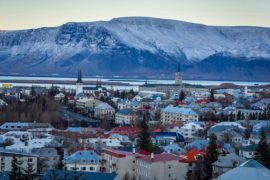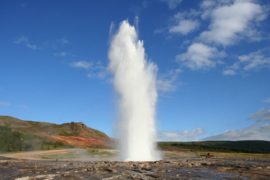So, you like the idea of moving to a country with stunning landscapes, a high standard of living and plenty of space to spread out?
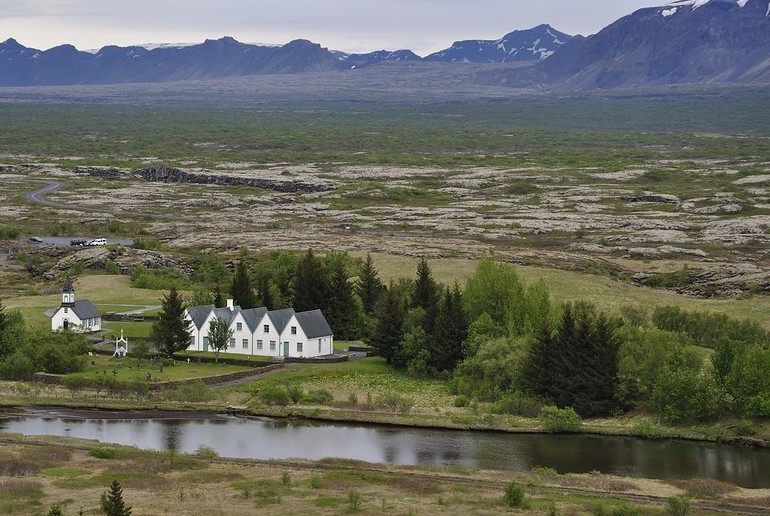
Iceland has all these things and more, but what is living in Iceland really like?
Is Iceland a cheap place to live? What visas and permits do you need to move there? And can anyone move to Iceland? Read on to find out all you need to know about living in Iceland.
Is Iceland an expensive place to live?
How to move to Iceland
Can UK citizens live in Iceland?
The cost of living in Iceland
So, how expensive is living in Iceland?
Is Iceland a dangerous place to live?
What is the population of Iceland?
What is living in Iceland like?
What is the lifestyle like in Iceland?
Is Icelandic easy for English speakers?
Living in Iceland: pros and cons
Is Iceland a good place to live?
Is Iceland an expensive place to live?
There’s no getting around it: Iceland is a very expensive place to live
For first-time visitors, certain things in Iceland can appear eye-waveringly expensive, such as food and drink.
Because of Iceland’s geography and climate, only about six percent of the island is suitable for agriculture, so that means that very little produce can be home-grown.
And since Iceland is an island, the vast majority of its produce has to be imported by sea or air, adding to the costs.
However – and this is where it gets interesting – there are certain things that you will find cheaper in Iceland, such as heating bills and housing costs.
And because Iceland has such a small population, rents and house prices don’t attract such a premium as in more densely populated countries.
Another thing to consider is that, despite Iceland’s climate being very cold, heating costs actually relatively low because of the extensive use of geothermal heating from the country’s volcanic geology.
How to move to Iceland
Whether you’re thinking of immigrating to Iceland for good or just fancy living in Iceland for a year or so, you’ll have to do some serious research and check out all the relevant rules and regulations.
A good place to start for all the information on Iceland’s immigration policy is the official government website.
Although Iceland itself is not a member of the EU, it is in the EEA (European Economic Area) and EFTA (European Free Trade Association), so citizens of countries in the EEA or EFTA have the right to live and work in Iceland.

Citizens of countries not in the EEA or EFTA will need a firm job offer and a work permit, which their potential employer will have to apply for.
Just note that Icelandic work permits are usually only granted if you have specialist knowledge or for jobs that Iceland has a shortage of labour for.
Other types of potential visa in Iceland include volunteer, student and missionary permits – for further information on visas and documents, visit Iceland’s official immigration site.
For the lowdown on getting a sim card in Iceland, click here and for advice and tips on car rental, see our post on Renting a car in Iceland.
Can UK citizens live in Iceland?
Any UK citizens who were already in residence in Iceland before 31st December 2020 have the right to remain and work in Iceland.
However, since Brexit, UK citizens wishing to move to Iceland will have to fulfil all the conditions that apply to non-EEA or non-EFTA countries. This site has more on the conditions for working visas.
The cost of living in Iceland
It’s true that at first sight Iceland seems an expensive place to visit and live.
Food and drink, and in particular eating out in restaurants, will certainly cost more than you’re used to, as will clothes and entertainment.
However, housing costs, utilities and pre-school childcare are all cheaper than the equivalent in the US or UK, making the difference in living costs less extreme than they may at first seem, especially if you actually begin living there and taking advantage of the welfare that’s available.
Recent reports have shown the cost of living in Iceland vs the US to be only about seven percent higher.
But when we look at the cost of living in Iceland vs UK, prices come out around 25 percent higher in Iceland.
You may however decide that the higher standard of living in Iceland is worth the extra expense.
Iceland currently ranks third of all countries in the world when it comes to quality of life – behind only the Netherlands and Luxembourg.
In contrast, the US comes in at 16th and the UK at 22nd place.
So, how expensive is living in Iceland?
Well of course, how much you spend a month will depend very much on your personal choices.
But assuming you factor in all the essentials, plus a few drinks out a week and the odd visit to a restaurant or cinema, then you can expect to spend around 500,000 ISK a month, which is US$3800 or £3000, at the time of writing.
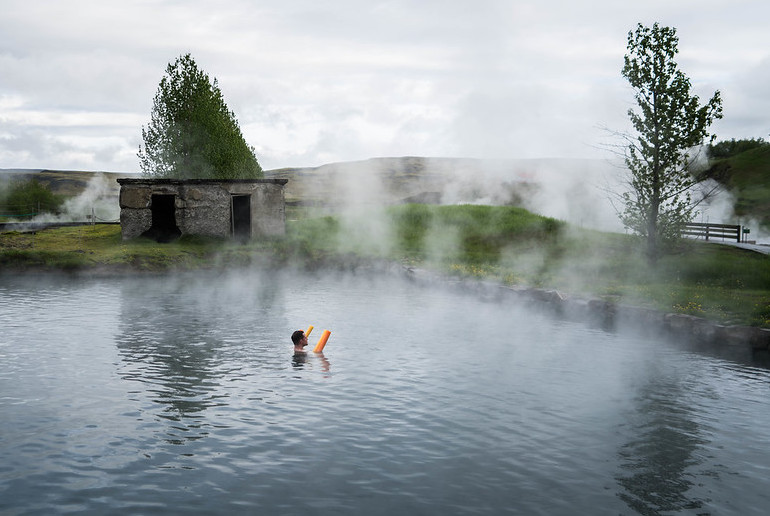
This may seem a lot, especially when you consider that the average salary in Iceland is around 450,000 ISK (US$3,450 or £2,700) a month.
However, when you consider that the average monthly salary in Reykjavik is closer to 700,000 ISK (US$5,350 or £4,200), then it certainly seems more manageable.
And it’s also worth remembering that some of the most amazing things about Iceland – its natural hot springs, stunning scenery, dramatic hikes – are completely free once you’re already living in the country.
For tips and ideas on how to save money in Iceland, check out How to visit Iceland cheaply.
Is Iceland a dangerous place to live?
Despite what you might think from watching Scandi Noir crime dramas such as Trapped, the answer is a resounding no.
In fact, in 2023 Iceland was ranked as the safest country in the world for the 14th year running by the Global Peace Index.
With low crime levels, a highly educated, well-trained and unarmed police force, and strong equality laws, Iceland is one of the safest places to live in the world.
It has one of the lowest murder rates of any country in Europe, averaging around two a year over the last decade, and the most common crimes committed are traffic offences.
What is the population of Iceland?
The population of Iceland is tiny – just 375,000 people live in a country the size of Kentucky in the USA.
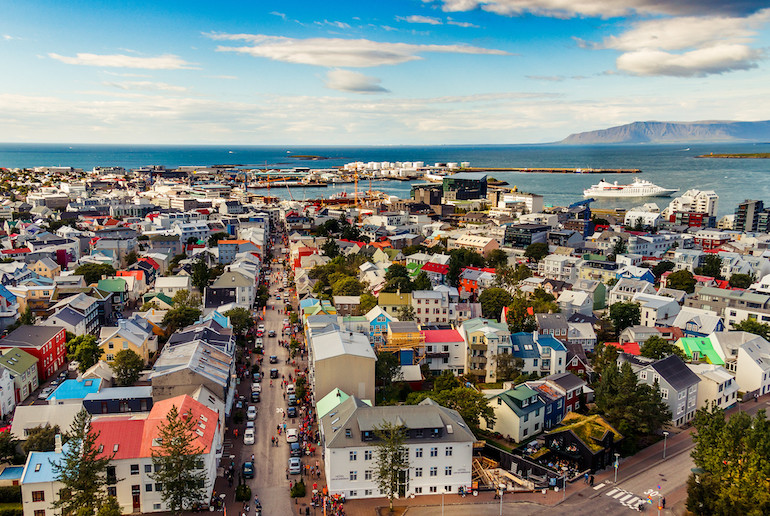
It’s the least densely populated country in Europe, with the majority of its citizens living in the southwest of the country, in and around the capital Reykjavik.
What is living in Iceland like?
Living in Iceland as an American or a Brit, things may seem very different on the surface.
But one of the great advantages is that English is widely spoken.
And, since Iceland has a small native population, most Icelanders are very welcoming to outsiders and tolerant of foreigners.
One of main appeals of living in Iceland is its scenery and landscapes, so if you are an outdoorsy person who loves to go hiking in the wilderness, climbing mountains and getting away from it all, then it will suit you.
However, you should bear in mind that the days are very short in winter, and even in summer the sun can be a rare visitor.
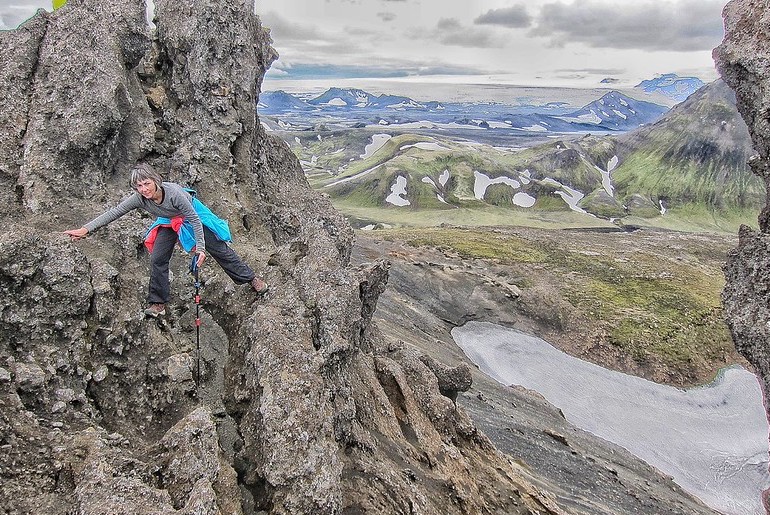
So despite winter in Iceland being stunningly beautiful, you’ll have to be prepared for long hours of darkness and harsh conditions.
For more on what’s good to do at which time of year in Iceland, see our post on The best time to visit Iceland.
What is the lifestyle like in Iceland?
Perhaps surprisingly considering its climate, Iceland is very much an outdoorsy type of country.
Locals like nothing better than to wrap up warm and gets outside into the countryside and nature whenever possible.
And a popular way to do this is to indulge in the very Icelandic hot springs culture.
Volcanic geothermal baths and hot springs are everywhere in Iceland and provide locals with a way to be outside and warm, even when temperatures are below freezing and there’s snow on the ground.
Iceland boasts more than 120 thermal pools around the country. Some smart, contemporary spas; some large pools with water slides; and others little more than natural swimming pools in the countryside.
Reykjavik’s municipal pools are where people go in the evenings to sit around in the hot water, chat and socialise or just relax after work.
Visiting one, or more, of these is a great way to meet locals and to integrate into Icelandic society.
Admission to seven of the pools is free to holders of the Reykjavik Card – read our post for details on whether a Reykjavik Card is worth buying.
Is Icelandic easy for English speakers?
Icelandic generally is considered quite hard for English-speakers to learn because to its grammar, with complex verb conjugations and four cases for nouns and adjectives.
Due to the country’s relative isolation it also has a lot of unique vocabulary that is not shared by any other languages nor based on Latin or Greek, like many other European languages.
And the pronunciation is often tricky for English-speakers to master.
However it does use the Roman alphabet, like most other European languages, but with a few variations. It has 32 letters, instead of our 26, with several combined vowel sounds.
Although most Icelanders speak good English, like in all countries they will really appreciate any attempts you make to try and speak the language.
To learn a few basic Icelandic words and phrases, check out this video.
Living in Iceland: pros and cons
There are many things to thing to factor in when you’re making such a life-changing decision as moving to a different country. So here are a few of the pros and cons of living in Iceland.
Pros
- Excellent, cheap health and social care
- Friendly, tolerant people
- English is widely spoken
- Stunning scenery
- High salaries
- Low crime rates
- Healthy, outdoor lifestyle
Cons
- High cost of living
- It’s remote – and 80 percent of the island is uninhabited
- Limited choice of food compared with other Nordic nations
- Difficulty of obtaining work visa or residency
- The climate – unless you love the cold and don’t mind wind and rain!
Is Iceland a good place to live?
So bearing in mind the pros and cons above, is Iceland a good place to live? Well, if you already have a job (remote or otherwise) and love the outdoors lifestyle, then Iceland can be a great place to live.
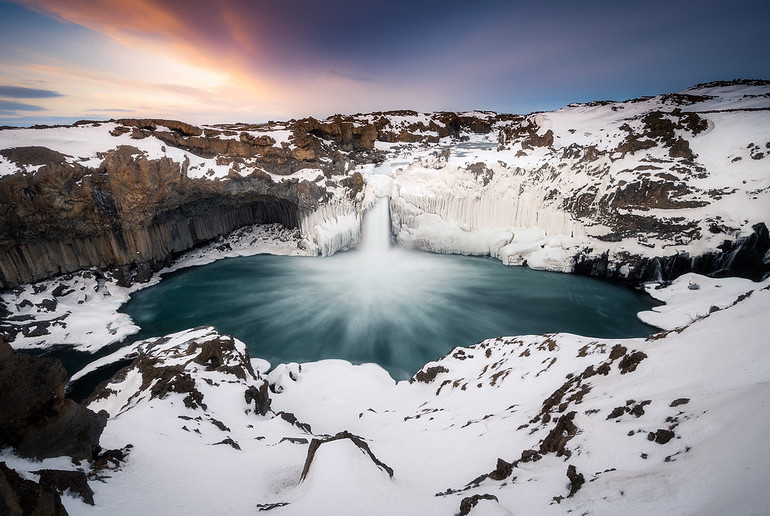
Its wide, open spaces and fantastic dramatic scenery are a great draw for anyone who loves nature and hiking. Iceland is also an appealing place to bring up a family, with plenty of space, good schooling and safe, friendly communities to live in.
However, if you’re not from an EU country and you don’t have a firm job offer, then you may well find it difficult to get the necessary visas and permits to live in Iceland.
You’ll also need to be someone who is comfortable with wrapping up warm and enjoying the great outdoors!
FAQ
Can I move to Iceland without knowing the language?
Yes, you can. English is widely spoken in Iceland. In fact, around 98 percent of the population speak enough English to be understood and many of them are fluent. So, you’ll have few problems being understood, though learning a few basic words and phrases will always be appreciated
Is it expensive to eat out in Iceland?
Dining out in a smart restaurant in Reykjavik will certainly cost you an arm and leg, especially if you order wine or beer with your meal. At Reykjavik’s Michelin-starred Dill, for example, the tasting menu costs 19,500 ISK (US$150 or £120), with wine an extra 19,500 ISK per head!
However, eating at one of Reykjavik’s food halls, she as the Grandi Matholl or the Hlemmur Matholl can be just as much fun and way cheaper.
Or, head for one of Reykjavik’s excellent pizza restaurants, such as Flatey, where tasty Italian-style pizzas start from about 1900 ISK (US$14.50 or £11.50) – similar prices as in the UK.
Are people in Iceland friendly?
On the whole, you’ll find most Icelanders are friendly, open and welcoming to strangers. Iceland is a tolerant progressive country, and its citizens are generally non-judgemental and easy-going.
If you’re polite, considerate and appreciative of the country and its rules, you’ll find the Icelanders a pretty friendly bunch.
See also:
Camping in Iceland: the ultimate guide
40 free and cheap things to do in Reykjavik
What to see and do in Northern Iceland
When are where to see puffins in Iceland
The best boat tours from Reykjavik




